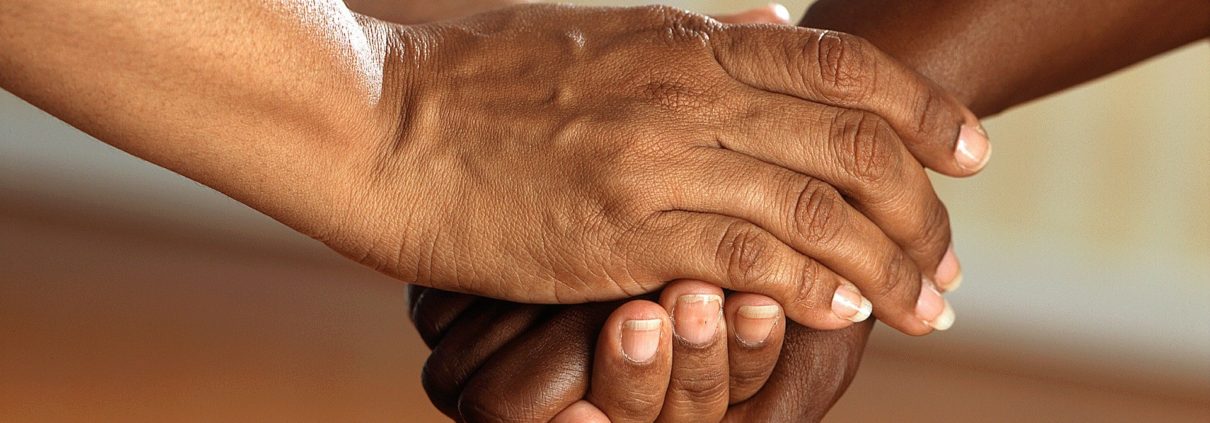How to Identify and Correct Enabling and Co-Dependent Behavior
Do you have a friend or family member who is addicted to drugs and/or alcohol? Are there times that you feel worried about and in despair over that person? Do you also want to help your loved one cope with his or her addictive behavior? If yes, you must know how to really deal with the issues at hand and avoid enabling and/or becoming co-dependent.
What is Enabling and/or Co-Dependent Behavior?
Co-dependency usually occurs when an individual, usually a family member or spouse of the addict, is controlled by the addictive behavior. Co-dependents exist because they believe that providing acceptance, love, approval, security, as well as taking care of the addict, is a way to protect their loved one. When this happens, the addict is in charge of dictating what and how they need things. Unfortunately, this behavior nurtures the dependency of the addict, and their addiction.
Enabling behaviors occur when an individual or a codependent helps an addict to continue his or her use of drugs, indirectly or directly. Examples of people involved in enabling behaviors are spouses or friends who often hide their addictive partner’s actions from neighbors or family members. They also tend to financially support their addicted loved ones, which enables them to buy drugs and keep their addiction alive.

The Role that Enabling and Co-dependency Take in Addiction
Enabling and codependent behavior are closely related. When used in a positive and healthy way, enabling manifests empowerment. It can be an act of helping or encouraging someone to better themselves. This works only when the individual is healthy and in a positive state. This can bring about positive effects in an effective and positive manner. When it comes to addiction, enabling and co-dependency carry many negative effects.
In this modern age where drug addiction is rampant, enabling behaviors have taken a negative meaning of doing things for others that could otherwise have been done for themselves. This is especially true when it comes to covering up their wrong doings and allowing them to continue their bad and unhealthy behaviors. Negative enabling behavior can actually hurt both people involved. This also prevents the onset and development of an individual as it builds resentment to an enabler. It also prolongs the recovery process and in some instances can also contribute to the death of an addict.
Co-dependence is where an individual makes their life about taking care of someone else who cannot help themselves, i.e. an addicted person. This person always creates excuses for the addicted individual and literally and figuratively cleans up their mistakes and messes for them. Distinguishing the difference between codependency and enabling behavior is best described in an old, yet well-known saying, “it is always better to teach a person to fish than to just give him a fish”.
When you are practicing co-dependent behaviors, you allow the addict to live with their habits without showing disagreement in what they do. This is the reason why they continue to have an unhealthy lifestyle because they know they have someone who will take care of them. No matter how serious their drug addiction is, they are guaranteed to have someone who will continue to support them through their addiction.
With the negative effects that both enabling and co-dependency offer, as far as drug addiction is concerned, it is best to address these issues early on. There is a need to think of an effective way on how to best deal with the situation in order to save your loved one from dying of addiction complications.
Enabling and Co-Dependent Behavior
There is a need to recognize the difference between codependency and enabling behavior. Co-dependency is actually a whole spectrum of behavior. These are usually from a person who has experienced growing up with a family of addicts. Here are some of the major dysfunctional areas of people with co-dependent behaviors:
- Denial
- Low self-esteem
- Compliance behavior
- Control behavior
- Avoidance behavior
As you observe this type of behavior, it is essential to ask for help from Broadway Treatment Center. They can offer you help to overcome these behaviors, and to support your addicted loved one in a healthy and positive way.
Apart from the co-dependent behavior that you might experience, there are also some enabling behaviors that you may encounter:
- Bailing them out again and again.
- Giving them chances.
- Ignoring their problems especially when they are very defensive.
- Joining them in the negative behavior they have, especially when they are dealing with some of their problems.
- Joining them every time they blame other individuals for their misfortunes, feelings and even problems in life.
- Accepting some of their rationalizations, excuses and, even justifications.
- Avoiding their problems.
- Helping them fix their problems.
- Repeatedly rescuing them.
- Removing or softening some natural consequences of their behavior.
As far as enabling behaviors are concerned, taking immediate action to avoid such behavior from continuously affecting, not only your life, but the life of the addict is a must.
You can now differentiate co-dependence from enabling behaviors as far as drug addiction is concerned. If you or a loved one is struggling, it’s best to seek immediate help from Broadway Treatment Center who will support both of you all the way through the recovery process. These behaviors will be addressed and you will learn new ways to interact with your newly sober loved one.

How to Break Enabling and Co-Dependent Behavior Surrounding Drug Addiction
Do you want to break the cycle of enabling and co-dependent behavior? There are many different methods on how to break unhealthy behavior and to completely detach yourself from it.
Attend ‘Anonymous’ Meetings
If you have a friend or a loved one who continues to abuse drugs or alcohol, one of the things you can do for them is to find your local AA or NA meetings. You, as a loved one, can also attend these meetings, where they can address unhealthy behaviors that surround an addict. There are also groups such as Al-anon and Nar-anon that are designed specifically for the families of addicts. You could surround yourself with people who also experience the same problems. The main purpose of the meetings is to learn from one another and to stop being codependent and enabling an individual suffering from addiction.
Prevent Yourself from Giving What They’ve Asked for
Stop offering a long-term place to stay, or money, to people who are struggling with addiction. Instead, try to insist that they must undergo treatment for their addiction. Some people also undergo Detox before they turn to another long-term treatment solution. Detox is usually included in a drug rehabilitation program. This detoxification process depends on the type of drug or alcohol you have been abusing and the quantities. After the detoxification process is complete, the addict will now be sent to either Residential, Outpatient, or Intensive Outpatient Treatment.
Giving Them some Tough Love
Tough love refers to the family of an addict and their refusal to give them what they want until they have fully recovered. When the codependent and enabling behaviors are put to a stop, the addict will feel the full effect of their addiction. They will then be given a choice on whether they want to recover from their addiction or they would want to continue the same unhealthy lifestyle.
Due to the very nature of drug and alcohol addiction, some addicts decide to continue their addictive behaviors no matter what. In this regard, their families must be tough. This is also true when their loved ones who are addicted ask something of them. They may be homeless and hopeless while they hit rock bottom. It is best to refuse saving or rescuing loved ones from this place. Often times it is needed for them to realize they need help.
Learn How to Say No
It is important that you learn how to say no to a loved one who is suffering from addiction. It may be one of the hardest things you have ever done, but their recovery and health depends on it. Nevertheless, you have the ability to make the right decision related to their path and purpose in life. In addition to that, you must learn how to say no every time they ask you to do something for them that could hide or excuse their unhealthy habits. Doing so is essential, especially to those who hate to see their loved ones suffering. Do not be a crutch for someone who is struggling with drug or alcohol addiction. Let them feel your absence, especially when they are in need.
These are some of the simple, yet the most effective things to do to be able to break the enabling and co-dependent cycle. When you implement the strategies listed above, you not only help your addicted family member, friend, or loved one, but you also help yourself from not being a contributing factor to their addiction. There are going to be times when your help is needed, and it will be hard to say no. Let them feel the consequences from their drug or alcohol addiction. There are times that refusal of help could and will benefit them a lot. Ask for help from Broadway Treatment Center who offers the best addiction treatment services in Orange County. They are professionally trained to help addicts recover from their drug and alcohol addiction problems.
How Drug and Alcohol Rehabilitation can help
As far as alcohol and drug addiction are concerned, drug and alcohol rehabilitation centers are trusted in offering you the best type of help. Broadway Treatment Center can offer the most effective addiction recovery treatments and programs that promise safe and thorough addiction recovery among addicts. They also offer comfortable, inviting, and family style facilities that appeal to their clients. Despite the fact that addiction recovery treatment initially takes a couple of months, you can rest assured that their addiction problems will be given the necessary care and attention in a comfortable environment.
Broadway Treatment Center has a professional team that is skilled in providing the best recovery programs, services, and treatments. Drug and Alcohol Addiction Treatment Centers are essential to help addicted loved ones recover. These treatment centers can also address any codependent or enabling behaviors that they see, and give options on how to correct them. There are counseling programs that can teach them to listen, communicate, and be more assertive. These types of programs help the enabler become more knowledgeable and aware of non-helpful behaviors and actions. These must be corrected to stop the enabling and co-dependent behavior.
These programs are conducted by professional and knowledgeable teams who are trained to identify and help people correct these behaviors. Once these enabling behaviors are corrected it will lead to faster recovery for their addicted loved ones. Broadway Treatment Center can help address all these issues, as well help your loved one on the road to recovery. We are equipped with a compassionate and highly trained staff. Their first priority is making sure our clients are comfortable and on the right path to recovery. We have many different program tracks, amenities, and approaches to addiction recovery. This allows us to treat a wide range of patients, we truly have something for everyone. Please give us a call today at 714-443-8218 to speak with one of our addiction counselors, or visit our website at www.broadwaytreatmentcenter.com.



